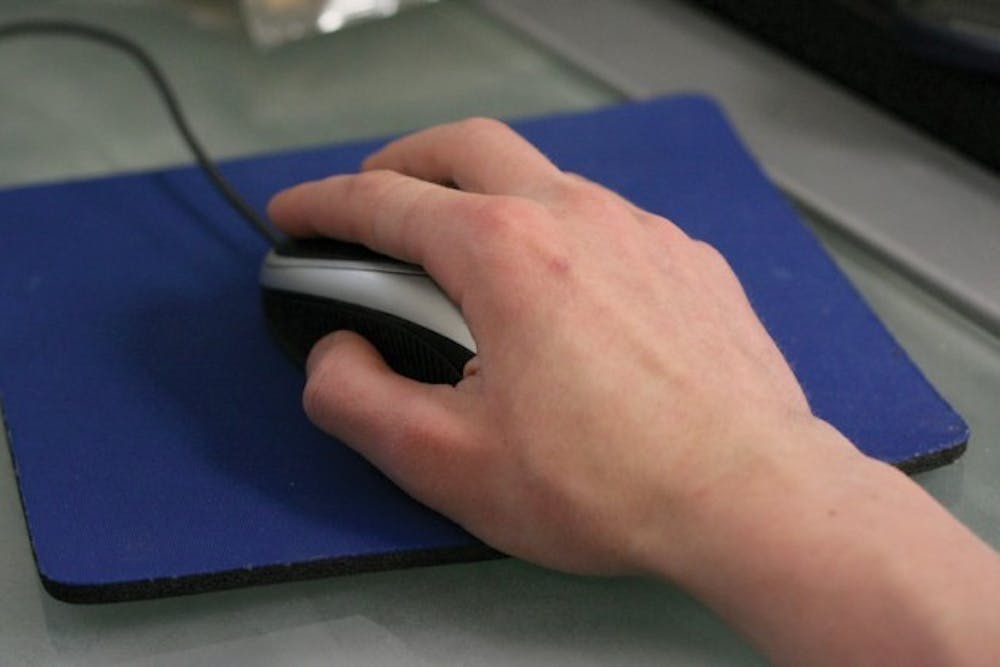With the ever-growing popularity of Facebook – there are now more than 500 million members – and its worldwide reach, many employers use Facebook as a tool to gauge future and present employees. As a result, many students feel the need to portray themselves in a different way in order to avoid judgments from employers, other students, and even their families.
"We don't necessarily say [Facebook] is the best tool," said Arlene Kaukus, director of Career Services. "One thing we do encourage students to be mindful of is that Facebook is a social media tool that some recruiters are looking at, so even if you're not necessarily using it as a career or networking tool, there are recruiters who will routinely look up someone's Facebook profile and see what's on there."
A number of UB students have realized that some employers do take Facebook profiles into account when evaluating a potential applicant. Some have begun to change the content of their profiles for current and future job hunts.
"You have to restrict what you do, what you look like. [Facebook profiles] don't totally accurately portray you," said Chris Haumesser, a junior in the School of Management. "Facebook was just supposed to be for college kids, but now it's turned into a networking site for jobs. Anything that doesn't look professional is something I wouldn't want on my Facebook. I wouldn't want an employer to judge."
Many seem doubtful regarding the potential benefits of having a Facebook page when looking for a job. Some prefer the more content-limited, business-related nature of LinkedIn, a networking website with slightly under 100 million users.
"We are encouraging students to really use the LinkedIn networks for their career and professional job search. That really is the tool that has been developed and exists for professional networking," Kaukus said. "So we are saying to students in our career counseling that if they're going to be using social media, definitely pay attention to building a strong and well-designed profile on LinkedIn."
In order to build an effective LinkedIn profile, Kaukus suggests being selective in choosing key words, being clear and descriptive when mentioning experience, listing competencies and skills, adding a profile picture as to give a visual indication of who the candidate is, and including leadership roles on campus and in the community to round out candidacy.
"There's really not that many good things that can come out of Facebook for a job interview. It only might hurt you," said Tony Piascik, a freshman civil engineering major. "You have to be careful what you put up there, anyone can look at it… I don't have [a LinkedIn], but it seems more professional than Facebook. It's more of a resume rather than just something social with your friends."
As Facebook grows, new generations are taking part in social media, including parents, grandparents, and aunts and uncles. When the dichotomous representation goes further than the job hunt, some are not comfortable being "friends" with family members who may also use the site to collect personal information.
Mike, who chose to remain anonymous due to the sensitive nature of his response, has two separate Facebook pages – one for family and another for friends.
"I'm not out to my family; I haven't told them I'm gay. So I have one Facebook that [says I'm] straight and one that [says I'm] gay. I have to filter more of what I'm saying on my family one," Mike said. "They still do see me as straight and if they saw it on my Facebook, that'd be like me coming out. There's two different ‘me's – the one that's straight that my family sees that keeps them happy and the other one where I can be out and free, that keeps me happy and I don't care what I write."
Some express concern with what is represented on Facebook, as posts, questions, or pictures may be misconstrued.
"Everything can be taken out of context. You don't really know what the real deal is. Something might be considered offensive, but you might not be seeing the full picture. That's when judgments are made," Haumesser said. "People take Facebook as a description of your personality… People look at your Facebook and they think it's everything about this person and they don't see anything further than that. It's the tip of the iceberg."
According to Kaukus, students should look at their Facebook profiles in terms of, "would I want a prospective employer to see this [or] read this?" Although much of this may be a personal judgment call, it's important to consider whether the content on Facebook would enhance or detract from one's application.
"Obviously it's very important for students with their Facebook profile to be conscious of the information you want a potential employer to see," Kaukus said. "Be mindful of the content, both the pictures as well as what is written on your Facebook profile because you really do not know who might get access to it, take a look at it, and evaluate your candidacy for a position based on that."
Email: features@ubspectrum.com





